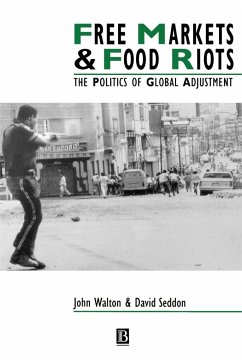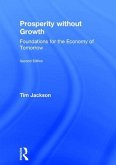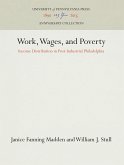This book describes and explains the extraordinary wave of popular protest that swept across the so-called Third World and the countries of the former socialist bloc during the period from the late 1970s to the early 1990s, in response to the mounting debt crisis and the austerity measures widely adopted as part of economic "reform" and "adjustment". During the development decades of the 1960s and 1970s, governments around the world borrowed heavily to finance economic and social development, only to succumb to the global debt crisis and general recession of the 1980s. The last 15-20 years have witnessed the increasing adoption of neo-liberal austerity measures, led by the stabilization and structural adjustment programs of the International Monetary Fund and the World Bank, which have averted a crisis for international banks by shifting the burden to the urban poor in the less developed or 'emergent, ' developing nations. Free Markets and Food Riots explores this general proposition in a cross-national study of the austerity protests, or the 'IMF Riots' that have affected so many debtor nations since the mid-1970s. The book argues that modern austerity protests, like the classical "bread riots" in eighteenth-century Europe are political acts aimed at injustice, but acts that are an integral part of the process of international economic and political restructuring. Modern food riots are most important for what they reveal about global economic transformation and its social, and political, consequences. Successive chapters provide a general framework (drawing on comparative and historical material) and then trace the cycle of uneven development, debt, neo-liberal reform, and protest in Latin America, Africa, Asia, the Middle East, and Eastern Europe. Additional chapters focus on the role of women in structural adjustment and protest politics and the features of seemingly anomalous cases which qualify the general argument.
Hinweis: Dieser Artikel kann nur an eine deutsche Lieferadresse ausgeliefert werden.
Hinweis: Dieser Artikel kann nur an eine deutsche Lieferadresse ausgeliefert werden.









